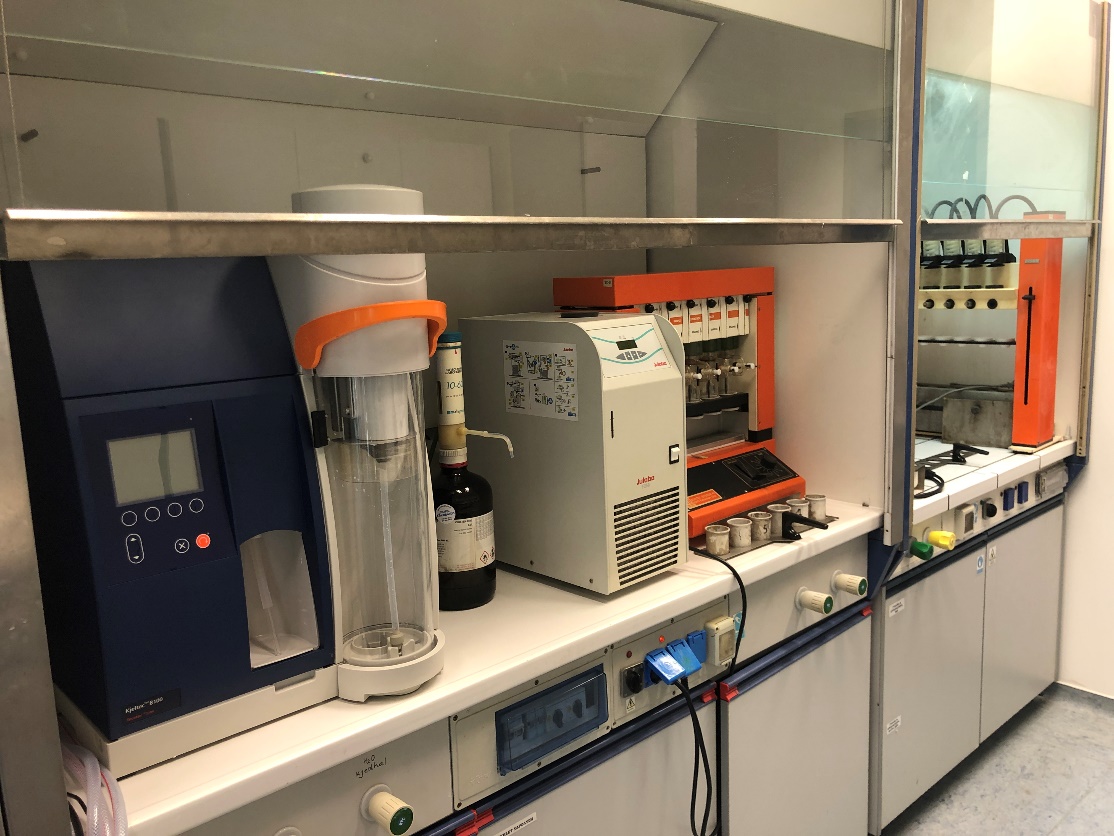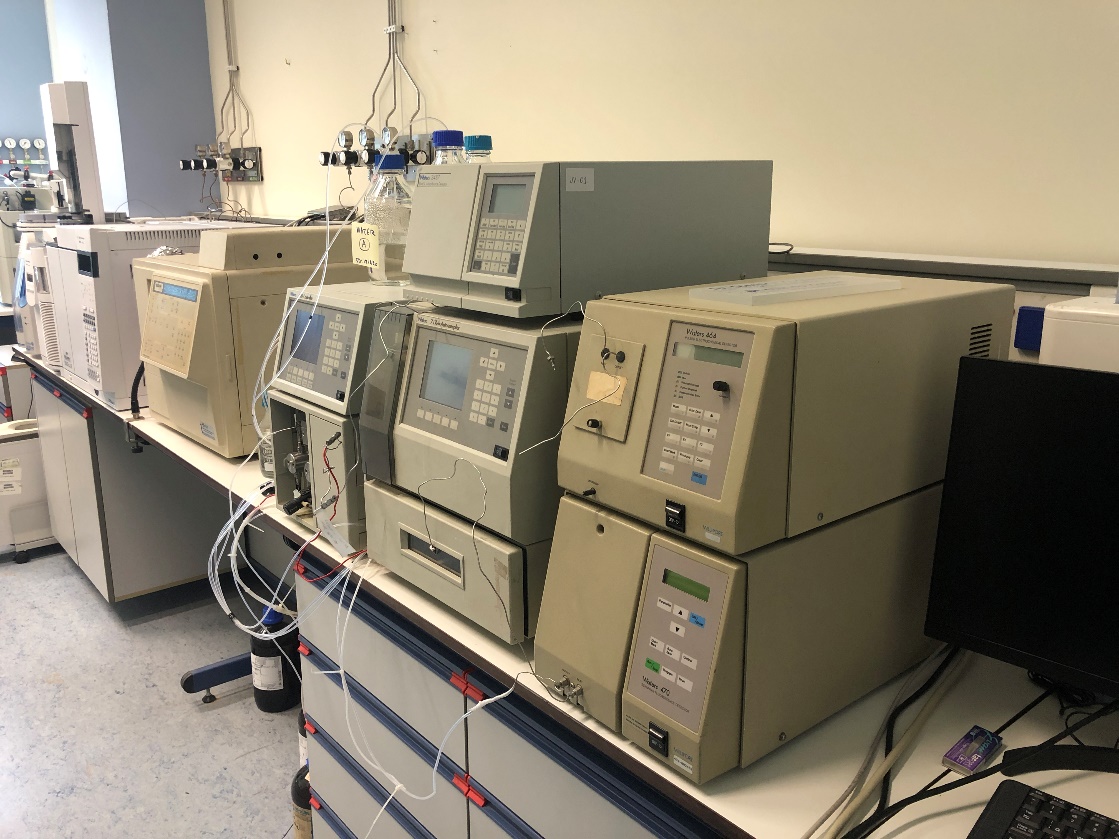Contact person
Name: Eleni Foudoulaki
Position: Research Director
Telephone: +30 210 9856734
Email: efoudo@hcmr.gr
Name: Ioannis (Yannis) Kotzamanis
Position: Research Director
Telephone: +30 22910 76491
Email: jokotz@hcmr.gr


The IMBBC’s Applied Nutrition laboratory (ApNutr) and Fish Nutrition and Omics Technologies laboratory (FiNuOm Lab) offer analytical services to the industry in biochemical and omics analysis for aquafeeds, raw materials and oils.
The two Labs specialize in evaluating the nutritional quality and effects of new dietary ingredients, supplements and bioactive compounds on the growth performance, quality, and health of fish at different stages of development. The FiNuOm Lab focuses also on investigating the molecular and physiological mechanisms that control and regulate fish appetite, growth, fat deposition and disease resistance using advanced techniques from the field of proteomics and metabolomics.
We offer the following analyses:
- Biochemical gross composition (protein, fat, moisture, ash)
- Antinutrients (Thripsin inhibitors, NSP, tannins) of feeds and raw materials
- Energy content
- Oxidation status of feeds and oils (Peroxide value, free fat acids, anisidine value, TBARs)
- Determination of saturates, monounsaturates, ω-6, ω-3 fatty acids in feed oils, raw materials
- Vitamins; stable form of Ascorbic acid, α-tocopherol
- Mineral determination (total phosphorus, calcium)
We carry out analyses for Greek and overseas enterprises. ApNutr lab and FiNuOm Lab possess cutting-edge expertise in marine raw materials and products. They can offer additional support and specialized knowledge, not generally available from commercial analysis labs.
Our personnel has extensive knowledge in raw materials, process development and products in marine and vegetable ingredients for the aquafeed and aquaculture industries. We guarantee that all contracts will be handled confidentially.
We also carry out various projects, such as the development of new methods of analysis, quality documentation in biochemistry, and help in the interpretation of regulations.
ApNutr lab is in the process of being accredited according to the ISO 17025/2017 standard, by the Hellenic Accreditation system (ESYD).
Gross composition – antinutrients
We have long experience of protein and fat analyses. We currently use analyses of protein both by the Kjeldahl method and by the nitrogen consumption method. For fat determination, we use the Soxhlet method with acid hydrolysis.
The amount of antinutrients in a raw material or in a feed determines the digestibility of the feed. Thripsin inhibitors, tannins and NSP (non-starch polysaccharides) are considered the most important antinutrients and thus their levels must not exceed a certain percentage. Though vegetable raw materials usually contain a high amount of these antinutrients, it is very important to know their content, in order to evaluate the % raw material to be included in a feed. Our long experience in the research of vegetable raw materials enables us to perform the specific analysis and evaluate those antinutrients.
Omega 3 oils
The ApNutr lab is an expert laboratory in the analysis of marine sources of fat, and we can support our customers in all matters related to this field.
Marine organisms are the source of an extremely wide spectrum of different fatty acids. Analysis of marine fat is, therefore, more demanding than the analysis of fat from other sources.
The ApNutr lab offers accredited analysis of fatty acid composition in which the customer obtains the actual levels of the various fatty acids in the sample, and not simply a percentage distribution.
Oxidation
The quality of oils and feeds is integrally linked to oxidation, and this has led us to study it in depth. We support the industry in their striving to produce products with high quality sensory properties. The analyses we carry include the determination of peroxide value, anisine value, Thiobarbituric acid reactive substances.
Aquafeed bioassays and biochemical analysis
In vitro and in vivo cell-based and organism-based bioassays to identify bioactive properties of ingredients and compounds used in formulated aquafeeds.
Aquaculture and Environment Interactions
Assessment of the potential utilization and environmental impact of commercial aquafeeds and fish waste
Customers
| International and national aquaculture companies
|
| Facilities |
| Research Directions |
|
|
|
|






